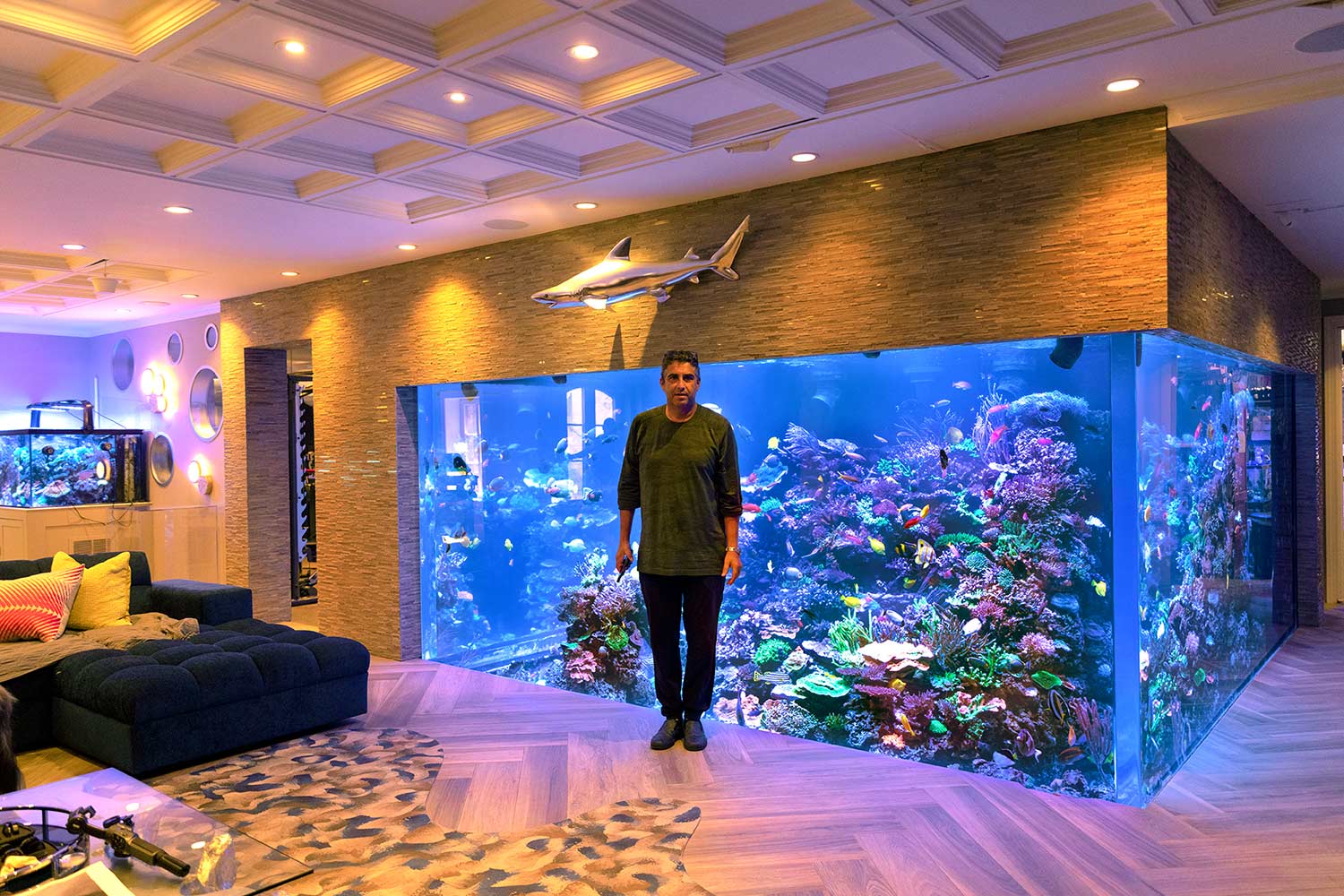Your Key to Reef Education
Polo Reef isn’t your typical reef tank setup or business. It’s a passion project turned mission-driven organization, built on philanthropy and operating much like a nonprofit. Founded by Andrew Sandler, whose love for reef aquariums began in childhood, Polo Reef is rooted in a lifelong connection to the hobby. That connection has given Andrew so much over the years — and now, he’s giving back.
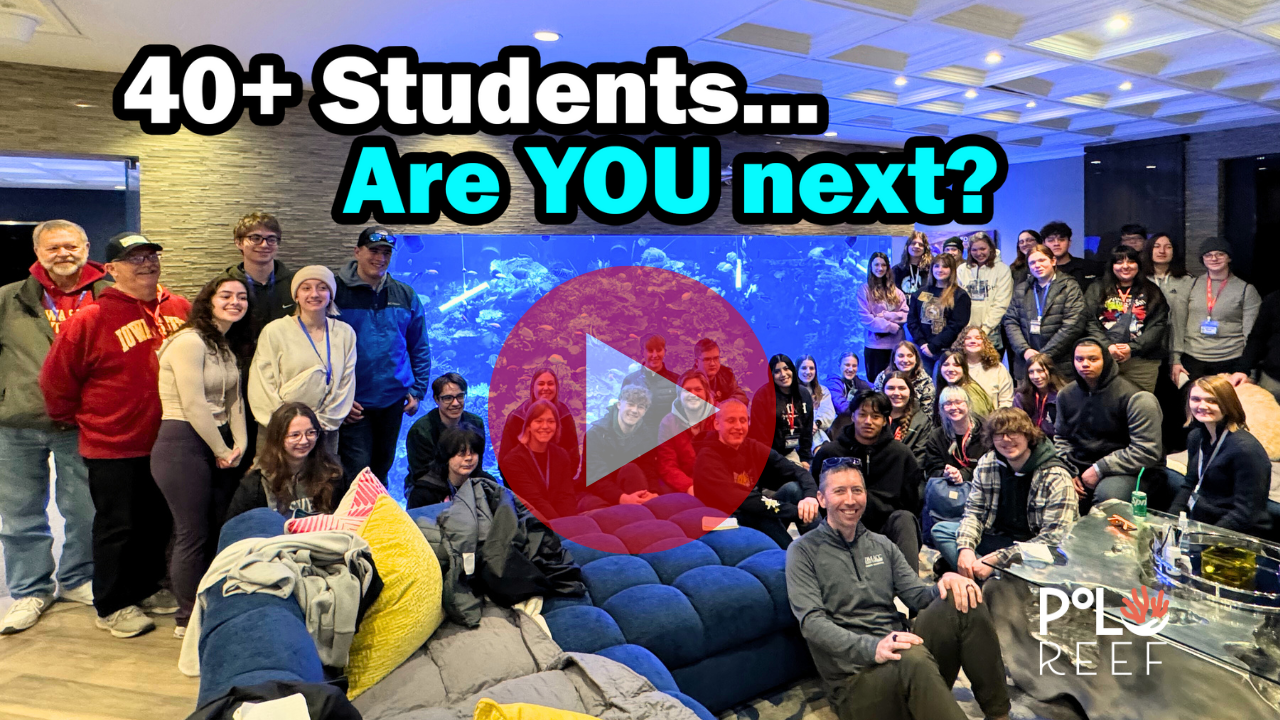
Education
Education Over Exhibition
At Polo Reef, education is the driving force behind everything we do. Whether it’s through school partnerships, research collaborations, or outreach within the reef aquarium industry, our mission is to make marine science more accessible, hands-on, and impactful.
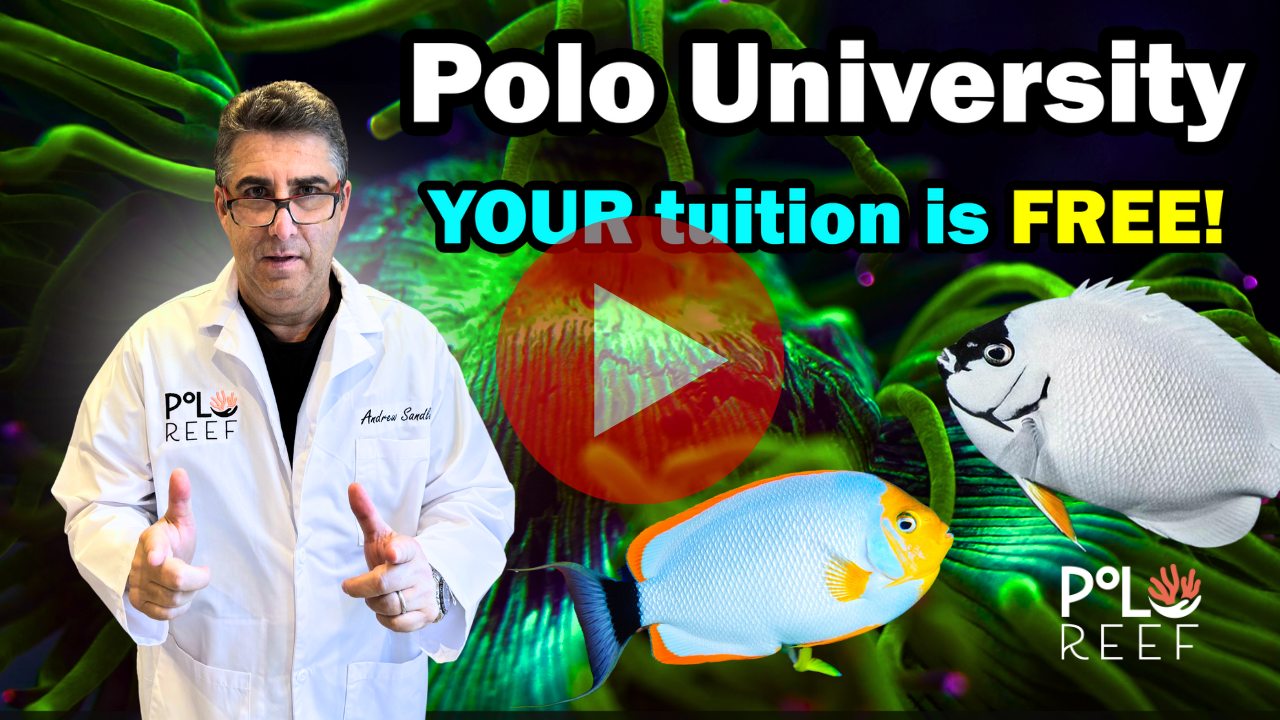
Research
Pushing Boundaries in Keef Keeping
With a fully equipped wet lab and a marine animal veterinarian on staff, our team tackles real research projects aimed at solving some of the hobby’s most persistent challenges. From developing new disease treatments and refining quarantine protocols to testing innovative techniques and uncovering better methods for long-term animal care — our goal is to bring clarity to the unknown.
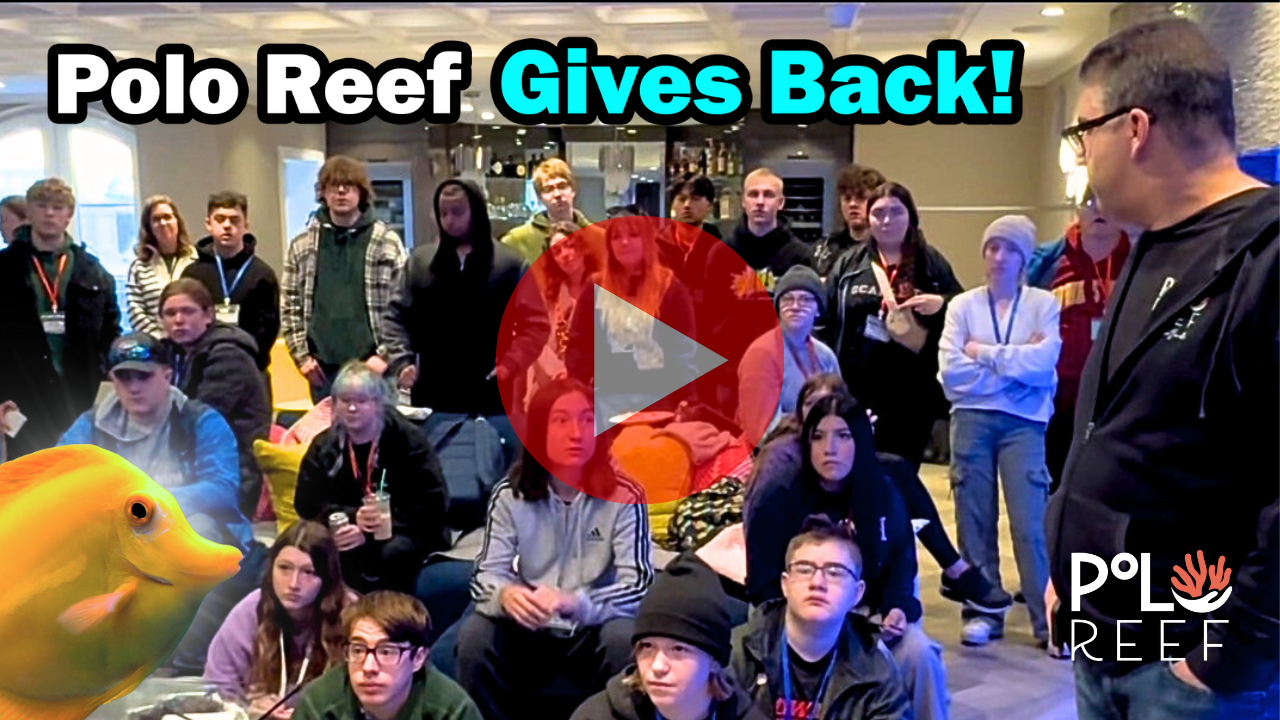
Philanthropy
We're About Impact
Polo Reef is rooted in philanthropy. From creating educational reef content for children undergoing cancer treatment to funding scholarships and marine science programs, the mission goes beyond aquariums. We've also supported coral reef restoration efforts across South Florida — all part of our commitment to making a real impact.
Reef Preservation & conservation
Polo Reef is deeply committed to the long-term protection, preservation, and restoration of coral reefs around the world. Through partnerships with leading marine science institutions, restoration groups, and educators, the team actively supports efforts that advance coral research, accelerate reef rehabilitation, and strengthen public awareness. Whether it’s providing financial support, contributing scientific samples, collaborating on fieldwork, or producing educational content, Polo Reef’s mission extends far beyond the walls of its aquariums. Andrew and the team believe that large scale reef keeping can be a powerful platform for science, stewardship, and meaningful impact.
Coral reef preservation is the practice of protecting existing reef ecosystems from further decline while restoring damaged areas through active intervention. This work can include coral farming, micro-fragmentation, nursery propagation, genetic diversity studies, water-quality monitoring, and outplanting corals back onto natural reef structures. These methods help rebuild ecosystems that have been weakened by climate change, pollution, overfishing, and disease. By supporting research and highlighting these methods through its platforms, Polo Reef helps demonstrate how modern science and responsible stewardship can give struggling reefs a second chance.
Healthy coral reefs support nearly a quarter of all marine life and provide essential benefits to coastal communities, tourism, and global biodiversity. Preserving these ecosystems strengthens fisheries, protects shorelines from storms, and maintains vital habitats for thousands of species. Through ongoing educational outreach, philanthropic partnerships, and transparent documentation of its own practices, Polo Reef encourages hobbyists and the broader public to understand why coral reefs matter and how small actions can create large, lasting change.
Learn More & Get Involved
Below are links related to reputable coral conservation, restoration and awareness organizations where you can explore, learn, and support global reef-preservation efforts:
The Reef Institute
Walker Wildlife Films
Coral City Camera
1,000 Mermaids
Official Merch - for charity
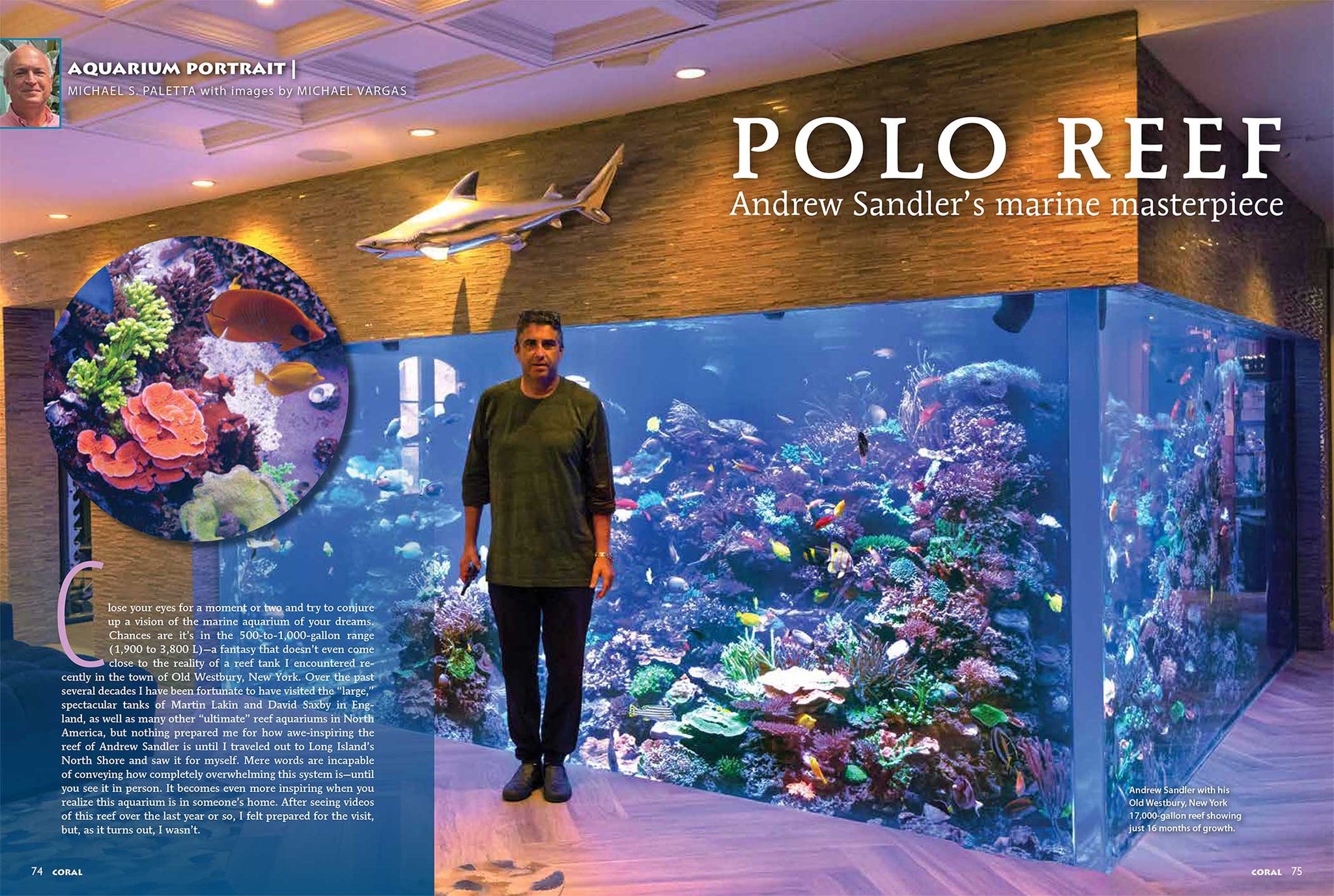
Andrew Sandler’s marine masterpiece - POLO REEF
As seen in CORAL Magazine's September/October 2022 issue
By Michael S. Paletta with images by Michael Vargas
Close your eyes for a moment or two and try to conjure up a vision of the marine aquarium of your dreams. Chances are it’s in the 500 to 1,000-gallon (1,900 to 3,800-L) range—a fantasy that doesn’t come close to the reality of a reef tank I encountered recently in the town of Old Westbury, New York.
Read the FULL article HERE!
Subscribe to CORAL magazine here.
